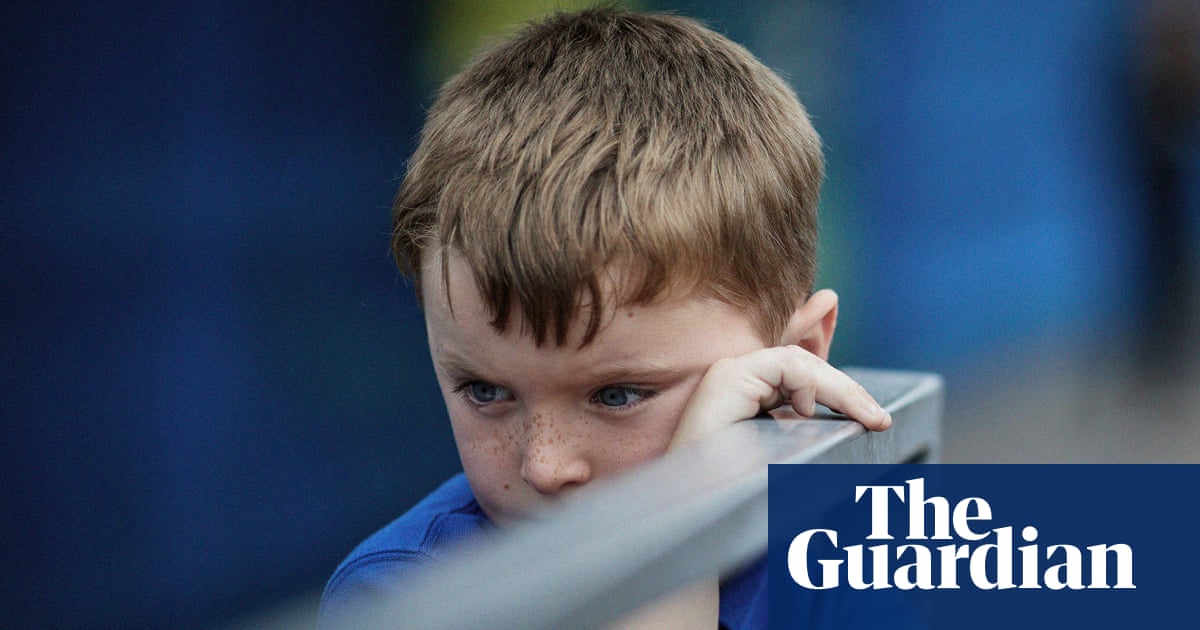Ban smacking children in England and Northern Ireland, say doctors | Child rights
Parents in England and Northern Ireland should be banned from smacking their children because doing so is unjust, dangerous and harmful, leading doctors have urged ministers.
It was “a scandal” that Scotland and Wales had outlawed smacking but not the other two home nations, the Royal College of Paediatrics and Child Health said on Wednesday.
Smacking children made them much more likely to suffer poor mental health, do badly at school and be physically assaulted or abused, it added, condemning the practice as “a complete violation of children’s rights”.
It said parents in England and Northern Ireland should no longer be able to claim that hitting their child was “reasonable punishment”, as was allowed under the current law.
The paediatricians want the education secretary, Gillian Keegan, to change the law before the general election expected later this year. All political parties should include a commitment to do so in their election manifestos, they added.
“The laws around physical punishment as they stand are unjust and dangerously vague,” said Prof Andrew Rowland, a consultant paediatrician, who is the college’s officer for child protection. “They create a grey area in which some forms of physical punishment may be lawful and some are not.”
The vagueness created by the “lack of legislative clarity … makes it extremely challenging to talk to families about what the rules are on physical punishment of children, thus making it more difficult to talk about the best interests of their children”, he added.
Rowland said that he saw children “sometimes once a week” at his clinics in Manchester who had been hit by a parent.
“I see children who have been physically punished with a smack or a slap [or] sometimes with an implement. They can be hit on their leg, arm, back or bottom.
“I’ve seen children who have been hit with a belt or blunt implement from the kitchen, like a spoon, or cables from a phone or laptop charger that’s been used as a whip. That can leave a child needing medical attention for an injury such as a bruise, open wound or even a fracture.
“I’ve seen this happen to children aged two to 18. This is wrong for all children, no matter what the circumstances, and it leaves them upset, angry and confused. It shouldn’t happen.”
Bess Herbert, an advocacy specialist at the campaign group End Corporal Punishment, said “hundreds of studies” had found that, besides physical and mental harm, the damage from being smacked could include poorer cognitive development, a higher risk of dropping out of school, increased aggression and perpetrating violence and antisocial behaviour as adults.
Sixty-five countries had banned smacking and 27 others had committed to doing the same, Rowland said. “England and Northern Ireland are out of step, internationally speaking.”
The NSPCC backed the college’s call. “All children deserve the same protection from assaults as adults,” said Joanna Barrett, the charity’s associate head of policy.
“In England and Northern Ireland, children continue to be exposed to a legal loophole that can undermine their basic right to protection under the guise of ‘reasonable chastisement’,” Barrett said.
“Hitting a child can have harmful and lasting consequences. We know from Childline that physical punishment can impact a child’s mental and emotional health and damage the relationship between parent and child.”
Rachel de Souza, the children’s commissioner for England, did not express a definitive view on the issue when she answered questions from MPs on the Commons education committee at her confirmation hearing in December 2020.
However, she indicated to Times Radio in April 2022 that she wanted ministers to consider banning smacking. “I absolutely abhor, and I’m against, violence of any kind against children,” she said.
“Because children are more vulnerable than adults, I think we do need to ensure that their rights are supported.”
The Guardian has approached the Department for Education for comment.
No Byline Policy
Editorial Guidelines
Corrections Policy
Source
